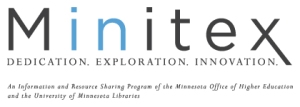 For your convenience, here is a recap of the last legislative session written by Elaine Keefe, our MLA/MEMO lobbyist representing our library and school media issues at the State Capitol.
For your convenience, here is a recap of the last legislative session written by Elaine Keefe, our MLA/MEMO lobbyist representing our library and school media issues at the State Capitol.
Also, the FINAL 2015 LMC Law Summaries have been finalized with post-special session information and are available online: Download the Bookmarked PDF here: www.lmc.org/lawsummaries2015
On July 7, 2015 at 9:38 p.m., Elaine Keefe writes…..
Below is a summary of 2015 legislative action (and inaction) affecting libraries. Most of this information has appeared in previous reports.
State Budget Overview: Despite having a nearly $1.9 billion budget surplus, Governor Dayton and legislative leaders were unable to reach a comprehensive budget agreement during the regular legislative session. After the session ended on May 18, Governor Dayton vetoed three major budget bills — the E-12 Education bill, the Agriculture and Environment bill and the Jobs and Economic Development bill. Legislators ran out of time and failed to pass the Legacy bill, the bonding bill and the Revisor’s bill (a technical corrections bill). After intense negotiations conducted largely between Governor Dayton and Speaker Daudt, an agreement was reached to hold a one-day special session to pass new versions of the three budget bills that were vetoed, along with the other three major bills for which time ran out. The special session was held on June 12. A revolt among Senate DFLers who were opposed to controversial provisions in the Agriculture and Environment bill threatened to derail the special session, but in the end all six bills were passed and Governor Dayton immediately signed them into law.
Library Appropriations in the E-12 Budget: Current funding levels were maintained for Regional Library Basic System Support (RLBSS), Regional Library Telecommunications Aid (RLTA), Multi-types, the Electronic Library for Minnesota (ELM) and Telecommunications Equity Aid (TEA). The MLA/ITEM platform called for increases in RLBSS, RLTA, Multi-type funding and TEA. We had excellent hearings on each of these requests in both the House Education Finance Committee and the Senate E-12 Budget Division, but the low targets set for education in both bodies ($157 million in the House and $365 million in the Senate) made it extremely difficult to get funding increases. The Senate E-12 education bill did include an increase in RLBSS of $1.5 million per year along with a formula change that increased the base portion and reduced the ANTC portion. The Senate bill also included an increase in funding for TEA of $1.5 million per year for the 16-17 biennium only. Neither of these increases survived the conference committee. The general education formula and early learning were the top priorities for legislators and the governor, and almost all of the new funding ultimately went to those two areas.
School Technology: The Senate E-12 education bill included a provision requiring school districts to reserve future increases in revenue from the School Endowment Fund for technology and telecommunications infrastructure, programs and training. The provision did not survive the conference committee.
After School Funding: The MLA/ITEM platform endorsed funding for high quality after school programs. The Senate E-12 education bill provided $500,000 per year for after school programs in the 16-17 biennium only, but this funding did not survive the conference committee.
General Education Formula: The final E-12 education bill increases the general education formula by 2% in each of the next two years. The formula allowance is going from $5,831 per pupil to $5,948 in FY 2016 and to $6,067 in FY 2017. Just over 2/3 of the new spending in E-12 education went to pay for this increase.
RLTA Language: The final E-12 education bill included language proposed by MDE and supported by MLA that more closely aligns RLTA with the federal e-rate program.
School Technology Plans: The final E-12 education bill repealed a requirement that school districts have a technology plan on file with MDE in order to qualify for TEA. This was proposed by MDE.
1:1 Device Guidelines: The final E-12 education bill requires MDE to research existing 1:1 device programs in Minnesota and across the country to determine best practices and to issue guidelines no later than February 15, 2016 and submit a report to the Legislature.
Data Privacy: The final E-12 education bill also includes a provision conforming Minnesota’s law governing student records to conform to recent changes in federal law. The St. Paul Public Schools initiated this bill to allow them to share student addresses with the St. Paul Public Library so that every student can be issued a public library card at school. Without this legislation the school district would only be able to share student addresses with the public library if the school district classified the addresses as public information.
Legacy Funding for Regional Public Libraries: Regional public libraries will receive $2.2 million in legacy funding in each of the next two years. This is less than the $3 million per year that was allocated for the FY 14-15 biennium. Legislators in both bodies were adamant that no one had a base budget for Legacy funds, and therefore it was not appropriate to characterize it as a cut or even to complain about receiving less than in the previous biennium. The House bill provided $1.5 million for FY 16 and $2.5 million in FY 17, while the Senate bill provided $2.95 million each year. The initial version of the bill that was presented to the public as the conference committee agreement included the House level of funding for regional public libraries. However, an amendment was made at the last minute to add $400,000 over the biennium. Thank you to all of you who contacted the conferees. I do believe you made a difference.
Legacy Funding for the Minnesota Digital Library: The Minnesota Digital Library will receive $300,000 per year, which is the same level of funding provided over the last two years. As in the past, the funding is appropriated to the Minnesota Historical Society with a directive to cooperate with Minitex and jointly share the appropriation.
Higher Education: Funding for Minitex and MnLink will remain at the current level. MnSCU received an increase of $100 million for tuition relief and the University of Minnesota received an increase of $52 million, which includes $30 million for the medical school and $22 million for tuition relief. The Minnesota Electronic Health Library was not funded.
Border to Border Broadband Grants: The final Jobs and Economic Development bill included $10, 838,000 for broadband grants. This is in contrast to the $20 million provided in the 2014 session and the $30 million proposed by Governor Dayton in his budget.
Seed Library: Inspired by the seed library at the Duluth Public Library, the final agriculture policy bill included an exemption from seed regulations for “interpersonal sharing of seed for home, educational, charitable or personal non-commercial use.”
Data Practices Training for Local Government: The League of Minnesota Cities initiated a bill to provide funding so that the Department of Administration could provide training to local government officials on complying with the Minnesota Data Practices Act. The Senate included $100,000 for this in its State Government Finance bill, but the House provided no funding. Like so many other things that were funded in the Senate but not the House, this did not survive the conference committee.
Library Construction Grants: Governor Dayton proposed an unusually large bonding bill for an odd-numbered year, and it included $2 million for Library Construction Grants. This is the first time that a governor has included funding for this program in his capital budget. In the end, the governor and legislators agreed on a far more modest bonding bill consisting mainly of urgent items. In preparation for 2016, we had a bill introduced to provide $10 million for Library Construction Grants (SF 2179/ HF 2353). Our chief authors are Senator Kent Eken (DFL – Twin Valley) and Rep. Jeff Howe (R – Cold Spring).
Elaine Keefe
Capitol Hill Associates
525 Park Street, Suite 310
St. Paul, MN 55103
(office)651-293-0229
(cell) 612-590-1244
elaine@capitolhillassoc.com
Image credit: http://tinyurl.com/oddkzbj, licensed under CC BY-NC-SA 2.0
 If you are typical, you may be unsure about whether you have “kept up” with your reading and awareness about the state of the nations’ libraries this year . Fear not, the American Library Association (ALA) has put together an easy to skim compilation of 2015 items that affected libraries. Everything from library tech consolidation to an account of the last library catalog card are yours in this short synopsis.
If you are typical, you may be unsure about whether you have “kept up” with your reading and awareness about the state of the nations’ libraries this year . Fear not, the American Library Association (ALA) has put together an easy to skim compilation of 2015 items that affected libraries. Everything from library tech consolidation to an account of the last library catalog card are yours in this short synopsis. 





